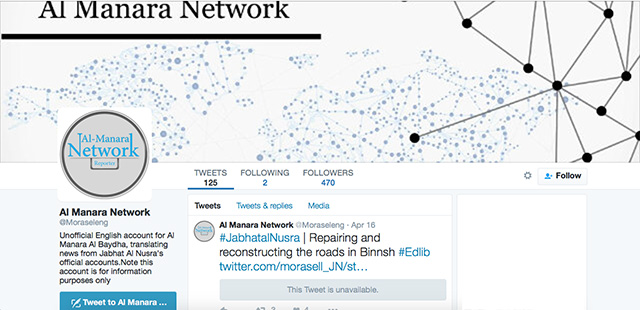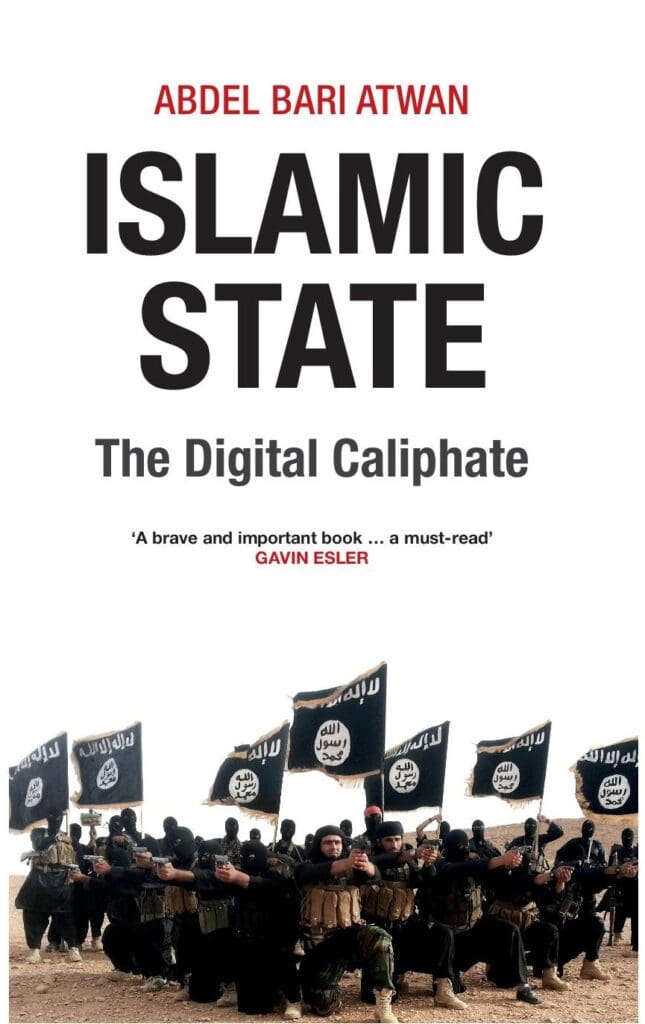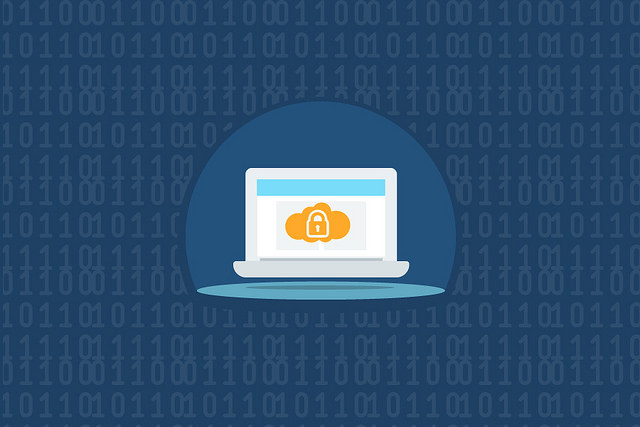Blog
Blog
Countering Lone Wolf Terrorism: Weak Signals and Online Activities
May 11, 2016By Lisa Kaati and Fredrik Johansson Lone wolf terrorists can come in a variety of shapes and backgrounds and they are in general very hard to detect before they attack. As argued by previous research, there are no clear profiles for lone wolf terrorists since they have a large variation in factors such as social status, ...
Blog
How Jabhat Al Nusra Uses Twitter to Spread Propaganda
May 4, 2016Twitter has become a key social media platform used by non-state actors in Syria to send propaganda to the rest of the world. For the most part Twitter has done a good job of clamping down on ISIS presence on the website. Twitter routinely bans ISIS supporter’s accounts and is quite fast at deleting ISIS propaganda ...
Blog
Gonna Get Myself Connected: Social Media as a Facilitation Mechanism
April 27, 2016By Timothy Holman “I think it’s — there are several networks. There are several facilitators. There are plenty of ways to get information back and forth: go through mosques, go through the Internet, go through phones, and you go through former regime elements that are located in Syria and other countries. There is a vast ...
Blog
Book Review: Islamic State – The Digital Caliphate by Abdel Bari Atwan
April 20, 2016By Daniel Falkiner Islamic State: The Digital Caliphate provides detailed answers to a number of pressing questions: What exactly is ISIS? Where did it come from? Who is behind it? How does it function? What are the reasons for its success? Daniel Falkiner welcomes the rich description and analysis and finds Abdel Bari Atwan does an admirable job of explaining the ways Islamic ...
Blog
How ISIS’s Language Changed Over Time: More Concern with Females and More “Net-speak”
April 13, 2016By Matteo Vergani We (myself and Ana-Maria Bliuc) just published a brief research-paper in the Italian magazine “Security, Terrorism and Society“. We used the computerized text analysis program LIWC (Linguistic Inquiry and Word Count) to investigate the evolution of the language across the first 11 Issues of Dabiq. Our paper shows ISIS’ increasing concern with ...
Blog
Could Encryption ‘Backdoors’ Safeguard Privacy and Fight Terror Online?
April 6, 2016By Prof. Keith Martin Since so much of life has moved online, a clash has emerged between the opposing values of internet freedom, and internet control. Should the internet be a public arena free of all interference and influence from the authorities? Or does too much freedom result in anarchy, turning the internet into a ...
Blog
On Social Media, ISIS Uses Modern Cultural Images to Spread Anti-Modern Values
March 30, 2016By Javier Lesaca The so-called Islamic State (ISIS) has emerged in less than two years as one of the major security challenges for the global community. At the same time, this terrorist group has become one of the most important phenomena in digital public communication since the beginning of the century. In fact, the analysis of ...
Blog
Terrorists’ Use of Messaging Applications
March 23, 2016By Matthew Francis and Emma Barrett Terrorists and criminals, like the rest of us, need to communicate and, like the rest of us, they look out for ways of communicating that meet their particular needs. Some features of messaging applications may make them more attractive than others to terrorists when co-ordinating and planning their activities or ...
Blog
Does the Media Say Too Much When Reporting on Terrorism?
March 16, 2016By Javier Delgado Rivera News coverage of investigations into terrorist attacks raise concerns about whether the media goes too far in reporting police findings that may be of some help to bloodthirsty fundamentalists. Before committing their heinous acts, terrorist-minded individuals will be sure to wipe out all the information on their cell phones after learning ...
Blog
Assessing the Ethics and Politics of Policing the Internet for Extremist Material
March 9, 2016The Oxford Internet Institute’s Ian Brown and MIT’s Josh Cowls co-authored the VOX-Pol report entitled Check the Web: Assessing the Ethics and Politics of Policing the Internet for Extremist Material, which explores the complexities of policing the web for extremist material, and looks into its implications for security, privacy, and human rights. Below, Josh Cowls discusses the report with Bertie ...









